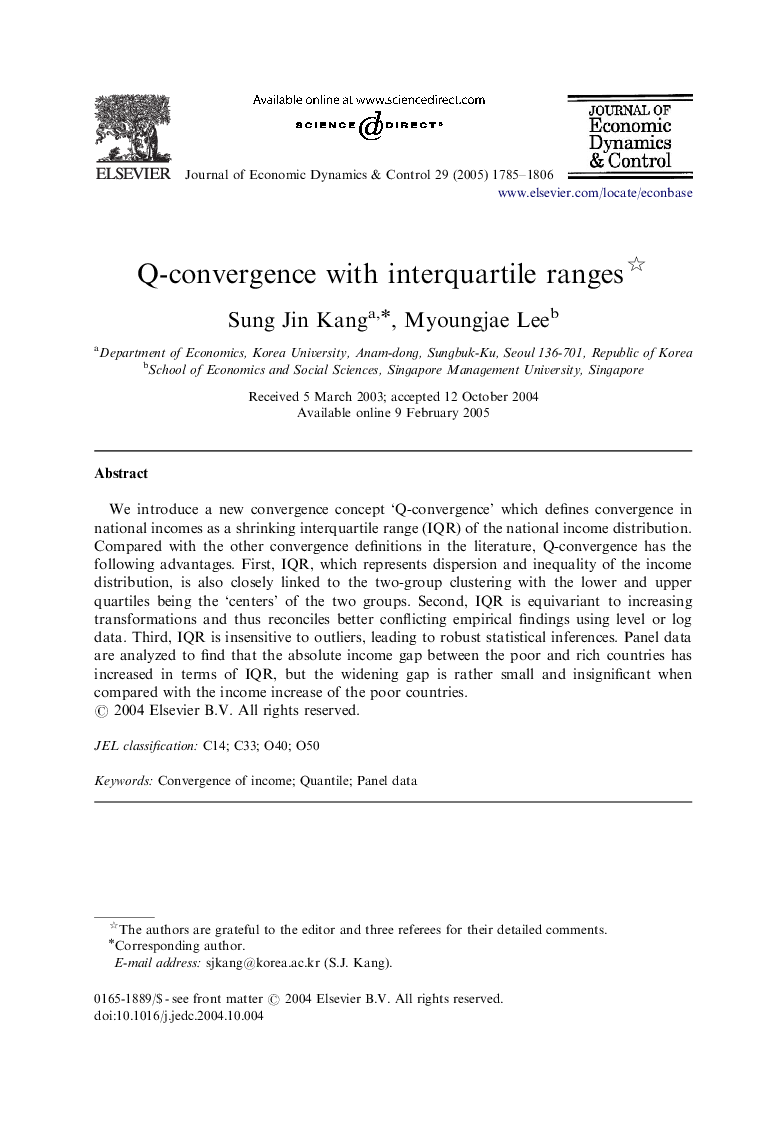| Article ID | Journal | Published Year | Pages | File Type |
|---|---|---|---|---|
| 9556147 | Journal of Economic Dynamics and Control | 2005 | 22 Pages |
Abstract
We introduce a new convergence concept 'Q-convergence' which defines convergence in national incomes as a shrinking interquartile range (IQR) of the national income distribution. Compared with the other convergence definitions in the literature, Q-convergence has the following advantages. First, IQR, which represents dispersion and inequality of the income distribution, is also closely linked to the two-group clustering with the lower and upper quartiles being the 'centers' of the two groups. Second, IQR is equivariant to increasing transformations and thus reconciles better conflicting empirical findings using level or log data. Third, IQR is insensitive to outliers, leading to robust statistical inferences. Panel data are analyzed to find that the absolute income gap between the poor and rich countries has increased in terms of IQR, but the widening gap is rather small and insignificant when compared with the income increase of the poor countries.
Related Topics
Physical Sciences and Engineering
Mathematics
Control and Optimization
Authors
Sung Jin Kang, Myoungjae Lee,
